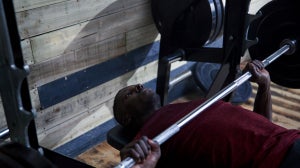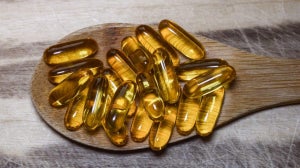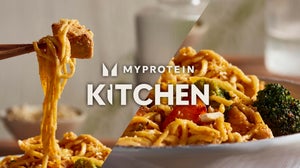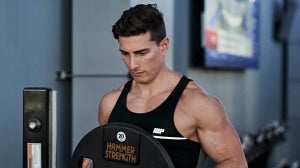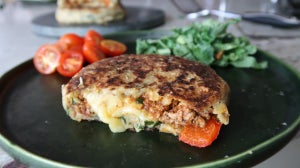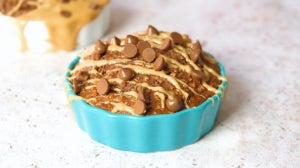
My Background
As part of the New Product Development team at Myprotein, I am involved in the development of new formulas and product innovation using the current trends in the research. I currently hold a Bachelor of Science in Sport and Exercise Science, and a Master of Science in Sports Physiology having achieved this from the world-renowned research institute, Liverpool John Moores University. As the weeks go on, these short articles will hopefully provide an insight into some of the hot areas of interest in sports nutrition and how these can be applied to a practical setting to support training and performance.
Importance of Recovery[/su_heading]
Although most individuals are pretty clued-up on the basic nutritional requirements, the importance of recovery is often ignored.
Many people either delay their nutritional intake after a session or in fact ignore it altogether!
This is a very simple mistake many make and it could have a huge impact on helping you to accomplish your training goals.
Without adequate refuelling between training sessions, the capacity to maintain your daily training intensities and volumes will be impaired, and what’s worse is, if this is practised long-term, it could even lead to fatigue, over-training, illness, burn-out or injury.
Another important thing to bear in mind is that it is within this recovery period that the muscle adapts to the stress of training, and therefore, it is important that the muscles are provided with the correct types and amount of nutrients to support adaptation, growth and repair (Slater and Phillips, 2007).
The Three ‘R’s’[/su_heading]
From a nutritional perspective, recovery always takes on 3 main goals, often referred to as the 3 ‘R’s’.
These include; replenish, rehydrate and repair.
Replenishment of muscle glycogen stores can be achieved by high carbohydrate intake, rehydration by consuming electrolyte-containing drinks and finally, muscle repair (reducing muscle soreness) can be facilitated by the intake of high-quality sources of protein.
Nutrient Timing[/su_heading]
For best results, it is important that your recovery should begin immediately after a session (< 1 hour) as this is when the muscle is most receptive in taking on board the key nutrients.
So applying this in a practical setting, as soon as you hit the changing rooms you should be looking to get your post-workout shake down.

This is a window of opportunity is often referred to as the ‘anabolic window’ (Rasmussen et al., 2000) and is where the enzymes and transporters in the muscle - responsible for glycogen and protein synthesis are more active.
Delaying this feed could reduce short-term energy replenishment by up to 50% and could have a detrimental effect on recovery.
How Much of What?[/su_heading]
As a general rule of thumb, 20-30g of protein (rich in leucine) should be consumed.
High quality and rapidly digestible protein sources (e.g. Whey protein) contain the vital building blocks (amino acids) to promote muscle repair, re-conditioning and reduce the extent of muscle soreness that is experienced after an intense training session.

This should be accompanied with approximately 1g of carbohydrate per kg of body weight.
High GI carbohydrates such as Dextrose or Maltodextrin are good choices.
Alternatively, my favourite post-workout snack is a ripened banana due to the high fructose and glucose content and rapid absorption rate of the sugars, as well as being nutrient-dense.
The addition of these carbohydrates could also induce an insulin-mediated response which has been shown to further stimulate muscle protein synthesis and support muscle growth and recovery (MPS; Rankin et al., 2004).
Rehydration through appropriate electrolyte solutions is also essential for recovery, and it is advised to consume 1.5L of water for every kg of body weight lost during an intense training session.
This will reduce muscle cramps and prevent any effects of dehydration which could lead to impaired performance or even illness.
In terms of real food, this equates to lean meat (pastured beef, chicken, turkey) or oily fish accompanied by high GI carbohydrates such as basmati rice and the addition of 500ml of water. Add salt to your meal for the additional sodium content to support the electrolytes lost from your training. Alternatively, if you are on the move and convenience takes priority then a whey protein shake with some form of fast releasing carbohydrate like maltodextrin or dextrose would be perfect.
Follow-up Recovery[/su_heading]
Although the immediate hour after exercise is crucial for recovery, it is also the subsequent meals following training and on rest days that should also be taken into consideration. This is to ensure that the muscle has sufficient nutrients to help promote muscle growth and repair.
A typical diet for someone carrying out intense training should consist of high protein-based meals throughout the day (1.5-2g per kg of body weight; 20-30g every 2-3hours) from lean meat, fish, dairy, and perhaps one or two additional supplements (such as whey or casein), as well as accommodating a high amount of protein (~20g) either side of training.
This will ensure that the rate of protein degradation (muscle breakdown) is reduced and MPS is elevated.
Carbohydrate intake will depend highly on specific training goals, periodisation of training, and the type of exercise carried out.
As generic guidance, your diet should mainly consist of low-med GI carbohydrates on rest days and then high GI types of foods should be used post-work-out to maximise muscle energy replenishment (e.g. wholemeal, oats, and leafy greens).
Take Home Message[/su_heading]
To ensure that you always get the best from your training, you should pay particular attention to your nutritional strategy as soon as you finish every work-out.
A blend of high GI carbohydrates (replenish), protein (repair) and fluid plus electrolytes (rehydrate) consumed within the hour after finishing exercise will help you to reach your training goals and optimise performance.
Slater G, Phillips SM: Nutrition guidelines for strength sports: sprinting, weightlifting, throwing events, and bodybuilding. J Sports Sci 2011, 29(1):S67–77.
Rasmussen, B.B., K. D. Tipton, S. L. Miller, S. E. Wolf, and R. R. Wolfe (2000). An oral essential amino acid-carbohydrate supplement enhances muscle protein anabolism after resistance exercise. J. Appl. Physiol. 88: 386-392.
12. Rankin JW, Goldman LP, Puglisi MJ, Nickols-Richardson SM, Earthman CP, Gwazdauskas FC: Effect of post-exercise supplement consumption on adaptations to resistance training. J Am Coll Nutr 2004, 23(4):322–330.
Impact Whey
Our articles should be used for informational and educational purposes only and are not intended to be taken as medical advice. If you're concerned, consult a health professional before taking dietary supplements or introducing any major changes to your diet.

